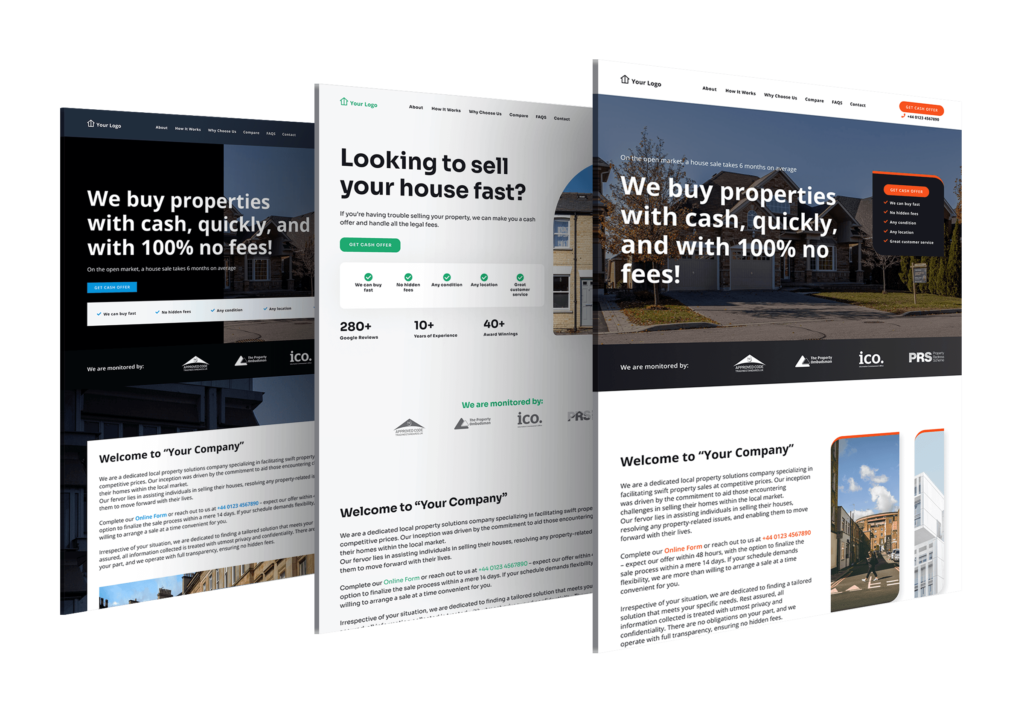Real estate is changing. People don’t just walk by and see a sign anymore. Now, they go online first. They want to look at homes or offices from their phones or laptops. So, if you sell homes or commercial spaces, your website needs to look good and work fast.
Your website is often the first thing people see. It must look modern, easy to use, and feel trustworthy. That’s why real estate businesses need to keep up with website design trends. Let’s explore 15 smart and modern ideas to help you shine online.
Design Trends That Convert Visitors into Clients
1. Clean and Simple Layouts
Too much stuff on a page can be confusing. Simple is better. A clean design helps people find what they’re looking for—fast.
Estate agent web designers now use open space, big pictures, and easy menus. This helps homes and buildings stand out without distractions.
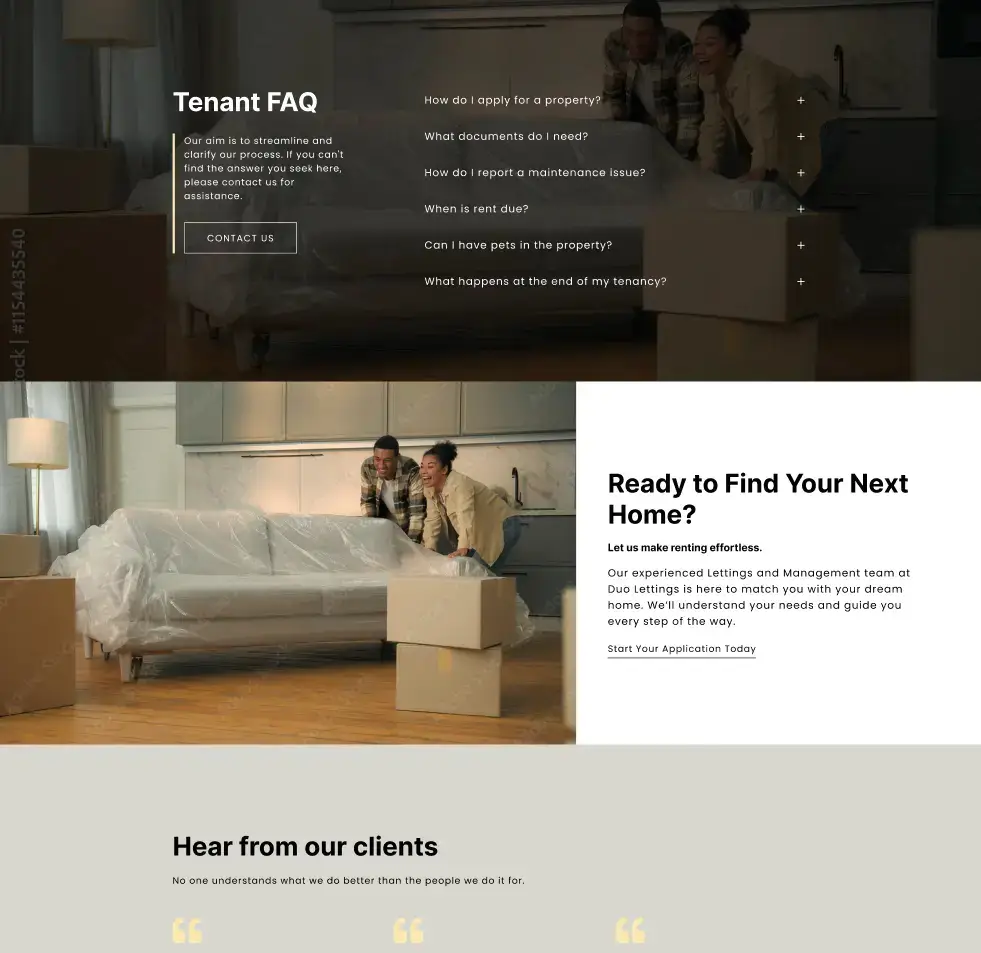
2. Full-Screen Property Photos
People love pictures. When they visit your site, they want to see the homes. That’s why big, full-screen photos are a big trend in real estate web design. It feels like stepping inside the property.
If your site uses small or blurry pictures, it’s time to upgrade.
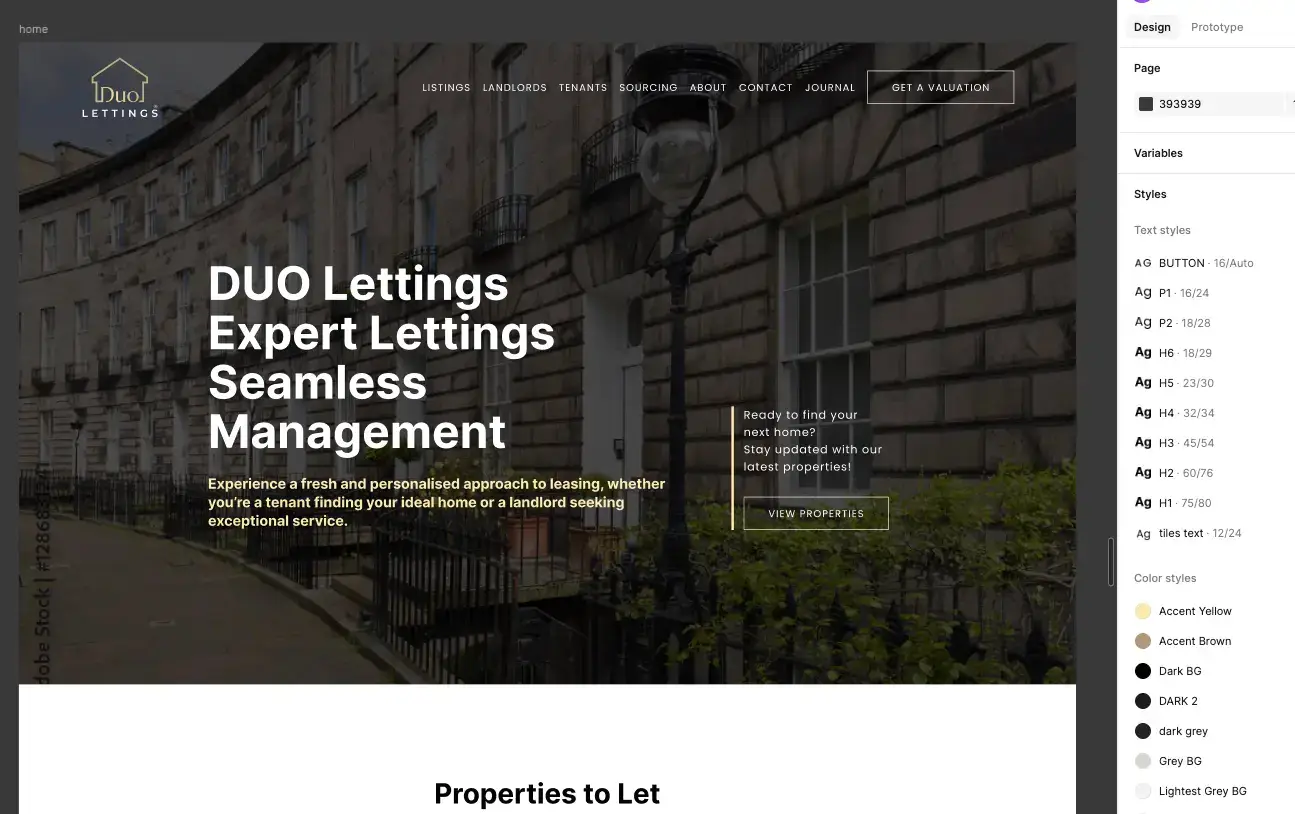
3. Video Backgrounds
Want your website to stand out? Try a short video background. Maybe show a drone flying over a house, or a walk-through of a new kitchen.
Web design for real estate agents often includes background videos on the homepage to grab attention.
4. Sticky Contact Buttons
When buyers love a home, they want to contact you quickly. A sticky button follows them as they scroll. It might say “Call Now” or “Book a Viewing.”
Modern real estate web design companies often add this so users never lose the chance to reach out.
5. Dark Mode Options
Dark mode is easier on the eyes at night. And it’s trendy. Letting visitors switch between light and dark modes shows you care about their comfort—and style.
It’s one of the newest website design trends making its way into real estate.
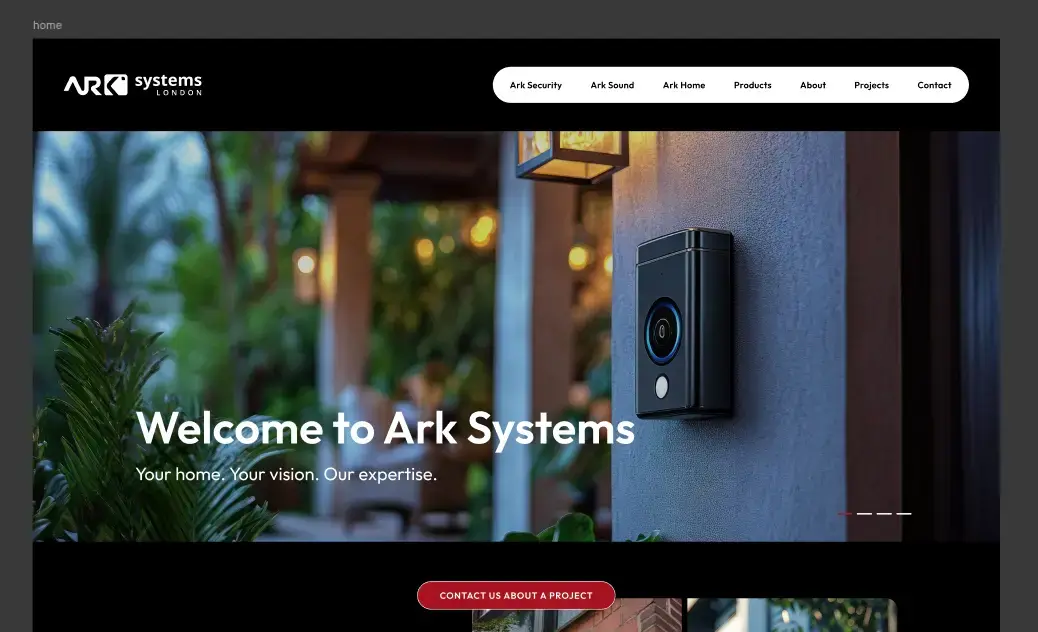
6. Mobile-First Design
Most people view listings on their phones. If your site isn’t mobile-friendly, you’re losing leads. That’s why commercial real estate web design now starts with mobile-first layouts.
Buttons are bigger. Text is easy to read. Pages load quickly—even on the go.
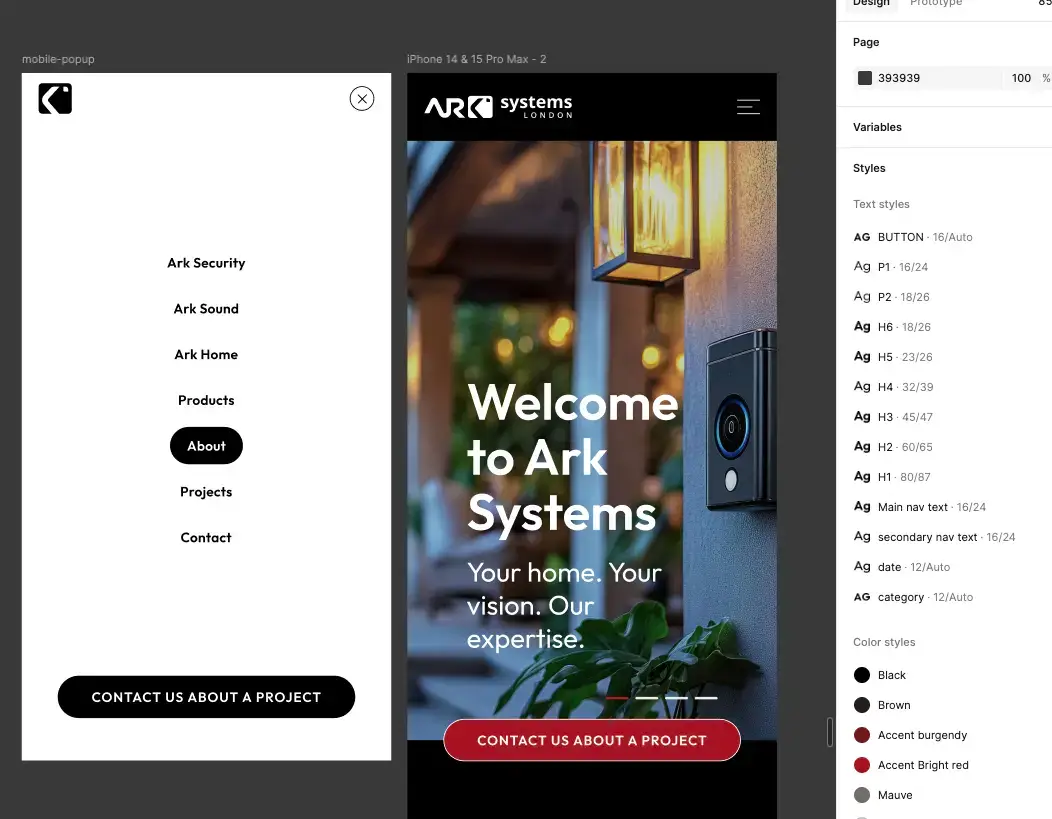
7. Smart Search Filters
Buyers want to find homes that match their needs fast. A good search filter helps them pick price, size, location, or even “has a garden.”
Today’s best web design for real estate agents includes powerful, easy-to-use search tools.
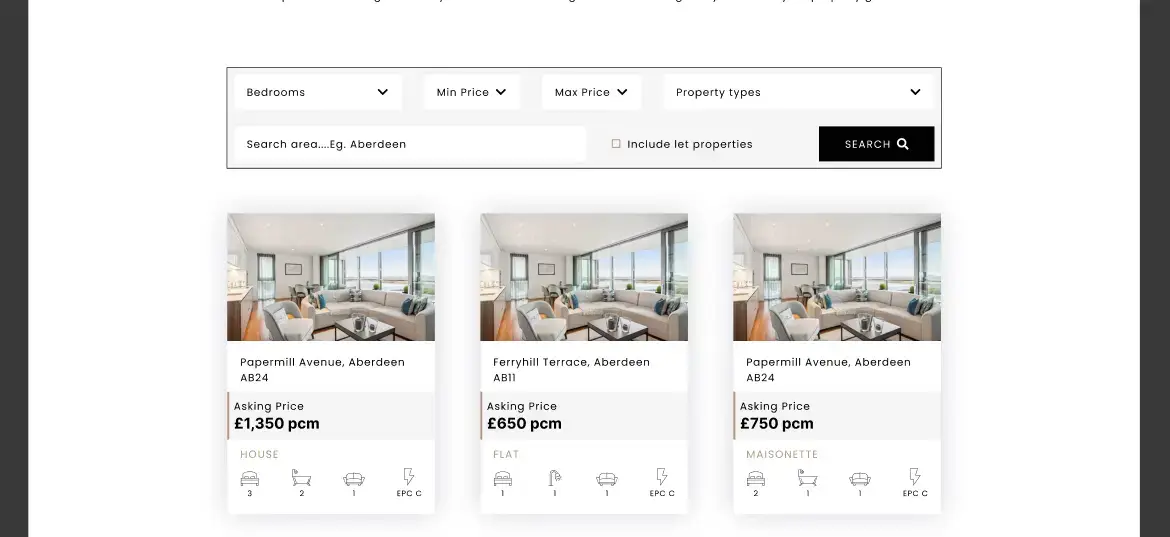
8. Interactive Maps
Maps help buyers see where homes are located. Modern websites now use clickable maps. Hover over a pin, and you see a photo and price.
This is common in real estate web design for agencies with listings in multiple areas.
9. Floating Chat Widgets
Many sites now have little chat bubbles in the corner. These let buyers ask questions anytime, day or night. You can connect this to a live person or set up automatic answers.
It’s a top tool estate agent web designers use to boost leads.
10. Lead Capture Forms That Don’t Annoy
Nobody likes pop-ups that jump out too fast. But well-timed forms can help. Maybe when a visitor finishes reading or clicks on a home twice.
Good real estate web design companies now design smart forms that appear at the right time and offer value like:
- “Get a free home valuation”
- “Download our local buying guide.”
11. Custom Icons and Illustrations
Forget boring clip art. Modern websites use custom icons and cute illustrations. These make the site feel more human and personal.
This works great for web design for real estate agents who want to show personality and warmth.
12. Bold Fonts for Calls to Action
“Book a Viewing.”
“Get a Free Estimate.”
“List Your Home.”
Big, bold text is easier to see and acts like a sign. It guides people to take the next step. It’s simple, but powerful.
It’s one of the easiest web design trends to add to your existing site.
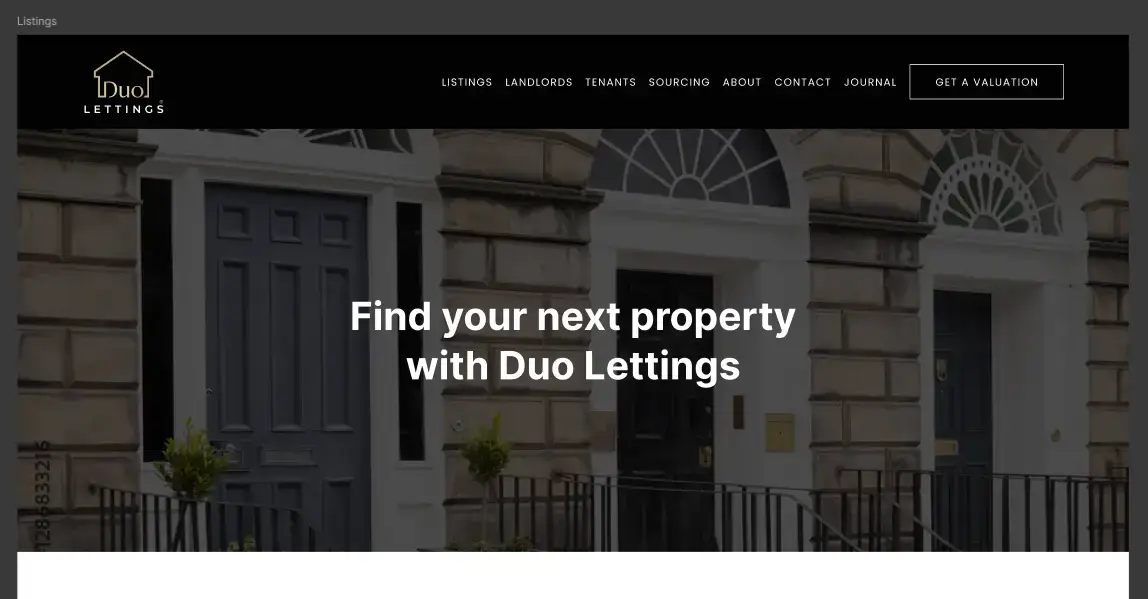
13. Fast Loading Speed
People won’t wait more than 3 seconds for a page to load. If your site is slow, they’ll leave. Today, fast sites win.
web design experts now focus on lighter code, compressed images, and smart caching.
14. Testimonials with Real Faces
Buyers trust other buyers. Showing reviews with real names and photos builds trust. Even better, include a quick video if possible.
Estate agent web designers often build pages with testimonials right after listings or calls to action.
15. Personalized Content
This is a big one. Smart websites now show content based on user behavior. For example:
- Show flats to people who viewed other flats
- Show commercial buildings to people who clicked “Office Space” before
This is called dynamic content, and it’s a growing trend in the real estate industry for web design.
BONUS: What Makes a Great Real Estate Website?
A modern website isn’t just pretty. It should do three things really well:
- Attract Visitors – Use good SEO and Google-friendly content
- Show Properties Clearly – Use big photos, video, and maps
- Make It Easy to Act – With buttons, forms, or chat boxes
If your website does these three things, you’re already ahead of many others.
Hiring the Right Real Estate Web Design Company
Not sure how to get started? Many agents work with a real estate web design company to build or refresh their site.
Here’s what to look for:
- They have experience working with property businesses
- They understand your audience
- They include SEO, mobile design, and lead capture tools
- They offer website maintenance or support
- They keep up with web design trends year after year
Stay Ahead With Smart Design
Real estate is moving fast, and so are websites. Your site should work hard for you. It should bring in leads, help people find homes, and make you look like the pro you are.
Use these 15 website design trends to refresh your real estate site. Whether you’re working with estate agent web designers or doing it yourself, start with what your clients need.
Because in real estate, first impressions matter—and your website is the front door.

